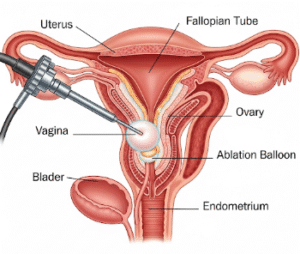Overview
Adrenal gland disorders encompass a range of conditions that affect the function of the adrenal glands, which sit atop the kidneys. These glands produce essential hormones, including cortisol, aldosterone, and adrenaline, which regulate metabolism, blood pressure, stress response, and more. Disorders can result from either overproduction or underproduction of hormones, often leading to serious health problems if left untreated.
What is an Adrenal Gland Disorder?
An adrenal gland disorder refers to any medical condition that impairs the adrenal glands’ ability to produce hormones properly. This can result in hormonal imbalances that affect nearly every organ system in the body. The disorders may be congenital (present from birth) or acquired later in life, and they may be caused by autoimmune issues, tumors, infections, or genetic mutations.
Common adrenal gland disorders include:
- Addison’s disease (adrenal insufficiency)
- Cushing’s syndrome (excess cortisol)
- Congenital adrenal hyperplasia (CAH)
- Adrenal tumors (benign or malignant)
- Primary hyperaldosteronism (Conn’s syndrome)
- Pheochromocytoma (rare tumor producing adrenaline)
Symptoms
Symptoms vary depending on whether the condition causes hormone excess or deficiency. Common signs include:
Hormone Deficiency (e.g., Addison’s Disease):
- Chronic fatigue
- Weight loss
- Low blood pressure
- Darkening of the skin (hyperpigmentation)
- Salt cravings
- Abdominal pain
- Muscle weakness
- Nausea or vomiting
Hormone Excess (e.g., Cushing’s Syndrome):
- Rapid weight gain, especially in the face, chest, and abdomen
- High blood pressure
- High blood sugar or diabetes
- Muscle weakness
- Mood changes or depression
- Easy bruising and thin skin
- Irregular menstrual cycles
Causes
Adrenal disorders can result from a wide variety of causes:
- Autoimmune diseases (e.g., autoimmune adrenalitis)
- Infections (e.g., tuberculosis, fungal infections)
- Tumors (benign adenomas or malignant carcinomas)
- Genetic mutations (as in congenital adrenal hyperplasia)
- Medications (e.g., long-term corticosteroid use)
- Surgical removal or damage to the adrenal glands
Risk Factors
Several factors increase the risk of developing adrenal gland disorders:
- Family history of endocrine or autoimmune diseases
- Long-term corticosteroid therapy
- Autoimmune conditions (e.g., Type 1 diabetes, Hashimoto’s thyroiditis)
- History of adrenal or pituitary tumors
- Genetic disorders like CAH or MEN (Multiple Endocrine Neoplasia)
- Severe infections or sepsis
Complications
If left untreated or mismanaged, adrenal gland disorders can lead to serious or even life-threatening complications:
- Adrenal crisis (sudden, life-threatening adrenal insufficiency)
- Severe hypertension or stroke (in pheochromocytoma or hyperaldosteronism)
- Osteoporosis and fractures
- Infertility or menstrual irregularities
- Psychiatric conditions like depression or anxiety
- Heart disease or diabetes (due to prolonged hormone imbalance)
Prevention
While some adrenal disorders are genetic or autoimmune and cannot be fully prevented, several measures can reduce risk or improve outcomes:
- Regular checkups for those with a family history of adrenal conditions
- Proper medication management, especially with corticosteroids
- Early treatment of infections
- Monitoring blood pressure and blood sugar levels
- Genetic counseling if congenital conditions are suspected
Treatment Options Korea
Treatment depends on the specific adrenal disorder and whether there is hormone deficiency or excess:
- Hormone Replacement Therapy
- Hydrocortisone, fludrocortisone for adrenal insufficiency
- Lifelong therapy may be needed in Addison’s disease
- Medications to Block Hormone Production
- Ketoconazole, metyrapone, or mitotane for Cushing’s syndrome
- Spironolactone or eplerenone for hyperaldosteronism
- Surgery
- Adrenalectomy to remove tumors or overactive adrenal tissue
- May be necessary in pheochromocytoma or adrenal cancer
- Radiation or Chemotherapy
- Used in adrenal cancer or when tumors are malignant and inoperable
- Lifestyle Modifications
- Stress reduction
- Healthy diet and physical activity
- Close medical monitoring to adjust medications













